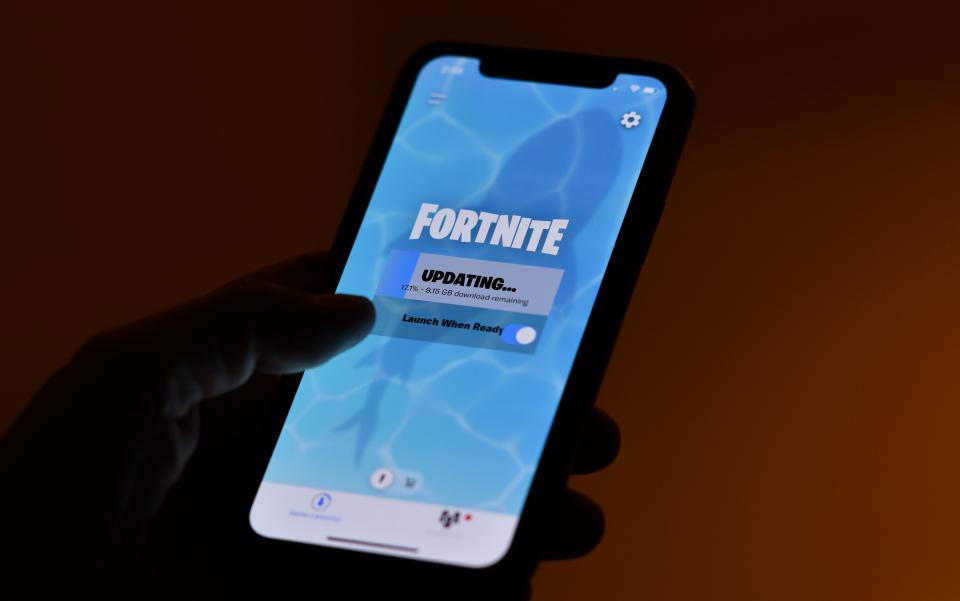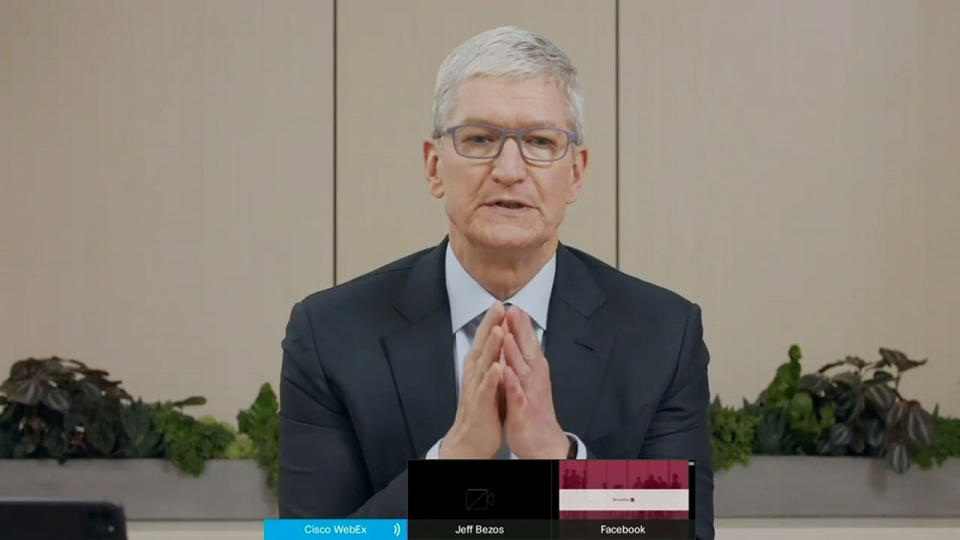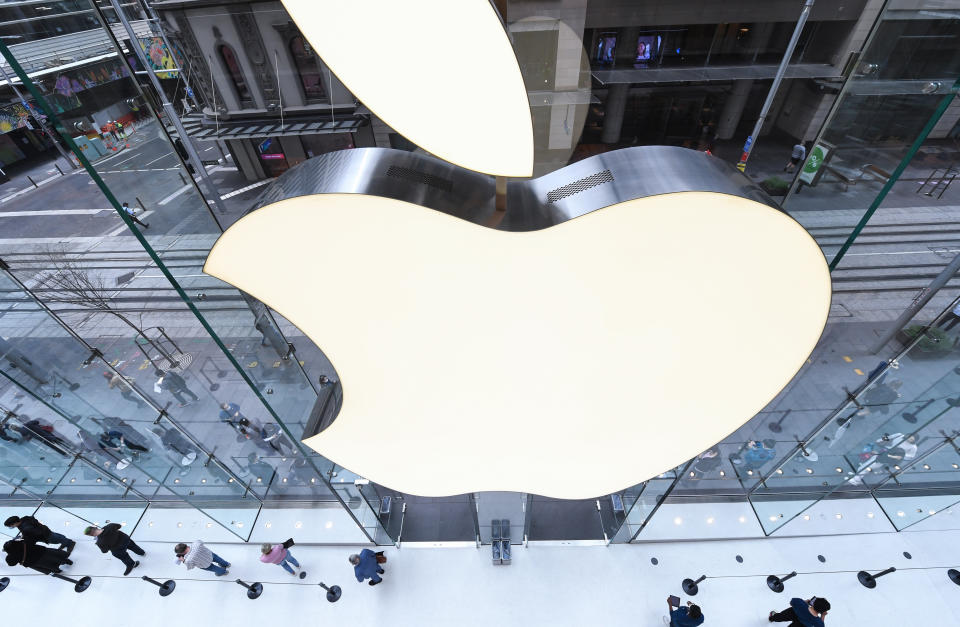Apple’s App Store war doesn’t end with Epic
Wednesday, September 30, 2020
This article was first featured in Yahoo Finance Tech, a weekly newsletter highlighting our original content on the industry. Get it sent directly to your inbox every Wednesday by 4 p.m. ET. Subscribe
Apple’s App Store war doesn’t end with Epic
Apple is surrounded by enemies on all sides. The tech giant, and first U.S. company in history to see its market value top $2 trillion, is facing a sustained backlash from app developers both large and small who say its App Store policies are unfair, and in some circumstances, violate antitrust laws.
The company has had similar accusations leveled at it in the past by the likes of Spotify (SPOT), but with federal and state investigations into Apple’s (AAPL) business practices heating up, the company’s critics are pressing their arguments harder than ever before.

And perhaps no company is going after Apple with as much gusto as video game publisher and “Fortnite” developer Epic Games, which has filed a lawsuit against Apple claiming its App Store operates as an illegal monopoly.
The dispute centers on Apple’s decision to pull “Fortnite” from the App Store after Epic added its own payment option in violation of App Store rules. On Monday, Epic argued that its smash hit “Fortnite” should be reinstated while the two heavyweights argue their cases.
The issue behind all of this? The 30% commission Apple charges app developers who sell their offerings through the App Store. And if Apple loses, it could have a direct impact on the company’s Services business, which pulled in $46 billion last year.
Epic’s ‘Fortnite’ fight
Apple requires app developers who sell digital goods through their apps to use Apple’s proprietary payment system. Using that system also requires developers to pay Apple a 30% cut of the total sale price of each purchase customers make.
Circumvent those rules, and you’ll immediately find your app kicked out of the App Store. Apple normally reviews all app updates to ensure developers comply with its rules, but Epic cut through this by simply pushing out a so-called “hot fix” for “Fortnite” on iOS that added a secondary purchasing option.
In addition to paying for in-app items using Apple’s payment method, Epic added the ability for gamers to pay using its own payment method. Epic even took the added step of giving gamers a discount for using its payment option.
Epic pulled off the same move with the Android version of “Fortnite,” since Google (GOOG, GOOGL) follows the same business practices and charges the same 30% for in-app purchases. Google, however, hasn’t received as much heat as Apple, because it, unlike the iPhone maker, allows consumers to download third-party app stores for Android phones.
Apple soon saw the change and yanked “Fortnite.” It then threatened to pull support for Epic’s Unreal graphics engine, which would impact developers who had nothing to do with Epic’s subterfuge. By pulling the Unreal Engine, app developers would be unable to address app updates or bugs using the software, leaving those companies that rely on the engine in limbo.

Epic, in response, has set up a website laying out its arguments for why it picked its fight with Apple. Apple, meanwhile, has said it won’t budge for one company, and that its App Store guidelines are in place to protect Apple users.
Now Epic and Apple are in court arguing about whether “Fortnite” should be reinstated while the outcome of the trial is still pending. Apple contends that it operates its App Store as a walled garden to ensure the quality of the apps that appear on its devices, and says it’s no different from how other app stores operate. Apple also argues that Epic benefits from the help the company offers in giving it access to the App Store and its audience.
What’s more, Apple says Epic could easily get back into the App Store by simply removing the secondary payment tool. There’s also the fact that Epic already sells “Fortnite” for a number of other platforms including PlayStation, Xbox, Switch, and PC.
Epic may have a serious fight ahead of it.
“I think Epic faces an uphill battle in its antitrust case,” Stanford Law School professor Mark A. Lemley told Yahoo Finance this week. “I believe Apple's pricing policies are problematic, and antitrust law should probably do something about it. But courts are very reluctant to dictate who a company (even a monopolist) has to do business with.”
“Longer term, though, both Apple and Google are going to have to rethink their pricing policies around their app stores. I don't think people will put up with exclusivity and a huge premium forever,” Lemley added.
Epic isn’t the end of the line
Even if Apple gets through the Epic fight without issue, it isn’t the only company lining up to take on the Silicon Valley behemoth. A group of app developers, including Basecamp, Deezer, Epic, Match Group (MTCH), Protonmail, and Spotify have formed the Coalition for App Fairness, which is pushing for, among other things, the establishment of new rules that would eliminate the 30% commission.
In 2018, Netflix (NFLX) removed the ability for users to sign up for its service via the App Store to ensure that Apple doesn’t get a cut of its sales. And last year, Spotify, which has taken the same approach as Netflix, filed an antitrust complaint against Apple with the European Commission, the European Union’s competition watchdog.

More recently, Microsoft (MSFT) and Facebook (FB) have criticized Apple for the way it regulates game services offered through the App Store. Apple subsequently made changes to its App Store policies, but Microsoft said the firm didn’t go far enough.
And then there are the ongoing investigations into Apple’s App Store policies, which include the Department of Justice and state attorneys general.
The House Judiciary Committee’s Subcommittee on Antitrust, Commercial, and Administrative Law is also looking into Big Tech companies including Apple, and questioned CEO Tim Cook, as well as the heads of Google parent Alphabet, Amazon (AMZN), and Facebook, about their business practices.
The Supreme Court even struck a blow against Apple last year when it ruled that iPhone owners could sue the company over its 30% App Store fees, opening the firm up to potential class action suits.
That means short of making system changes to its App Store policies itself, Apple won’t be escaping the specter of an antitrust crackdown in the near future.
By Daniel Howley, tech editor. Follow him at @DanielHowley
More Tech News
Palantir: How the stock is trading on its first day
Netflix price hike looms — here's how much more money Netflix may haul in
Walmart is updating its iconic Supercenter store for the digital age
Review
Apple Watch reviews: The best features of the Series 6 and SE
—
Read the latest financial and business news from Yahoo Finance
Follow Yahoo Finance on Twitter, Facebook, Instagram, Flipboard, LinkedIn,YouTube, and reddit.
